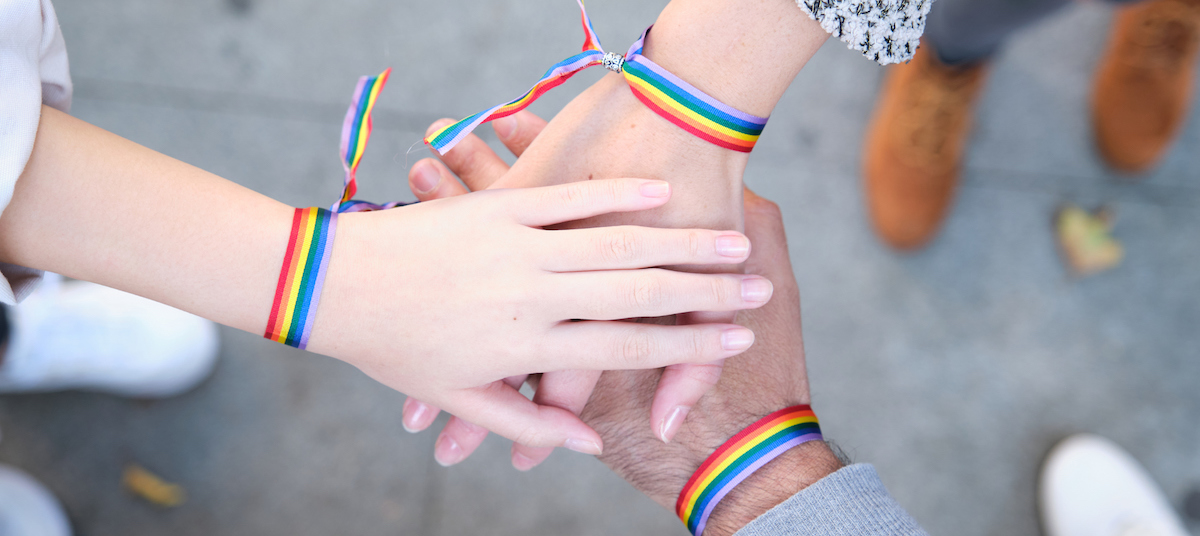<< Back
What Does it Mean To Be an LGBTQ Ally?

October 12, 2021
The declaration “I am an Ally” dotted social media feeds during Pride Month and now during LGBT History Month, but what exactly does that mean and how can you become one?
Loosely, an ally is a person or group who supports and helps another in a struggle; these days, it describes people supporting LGBTQ people.
“Allies are important for any minority group, such as the LGBTQ community,” said Dr. Laura Saunders, clinical coordinator of The Right Track/LGBTQ Specialty Track at the Institute of Living, part of the Hartford HealthCare Behavioral Health Network. “They come in with greater visibility and can use their power differential to make a difference and get things done.”
When serving as an ally for the LGBTQ community, the first step, she said, is understanding. Often, allies have a strong connection to the community through a relative or friend, but that is not always the case, she said.
“People need to really think about what it’s like to be LGBTQ and endure the challenges they face,” she said.
Showing support then becomes rooted in compassion and can take many forms. Threaded throughout, however, should always be a willingness to speak up, Dr. Saunders said.
“Allies do not remain silent if someone tells an LGBTQ joke, or they witness discriminatory or hurtful behavior. They always speak up and explain why the jokes or behaviors are unacceptable,” she said. “Allies should not be passive.”
Support cannot be confined to the month of June, which is Pride Month, or single incidents, she continued.
“This must be a willingness to actively provide support at all times,” Dr. Saunders said.
Being a LGBTQ ally can include:
- Visually showing support by placing a flag on your front lawn, joining a rally or signing a petition advocating for increased rights.
- Staying informed about laws and policies affecting the LGBTQ community. That, Dr. Saunders said, is how to best understand various challenges they face. Use the information to lobby legislators for change.
- Recognizing the importance of pronouns. Ask others what pronouns they prefer and use them as a sign of respect for their identity. You can show good intentions by asking others to let you know if you mistakenly use the wrong pronoun.
- Listening. Letting the other person share helps you understand their life and struggles, and maybe helps you identify ways to help.
- Including everyone. Make an honest effort to be inclusive at work, socially and on sports teams and clubs. Advocate for activities and groups to be open to all people.